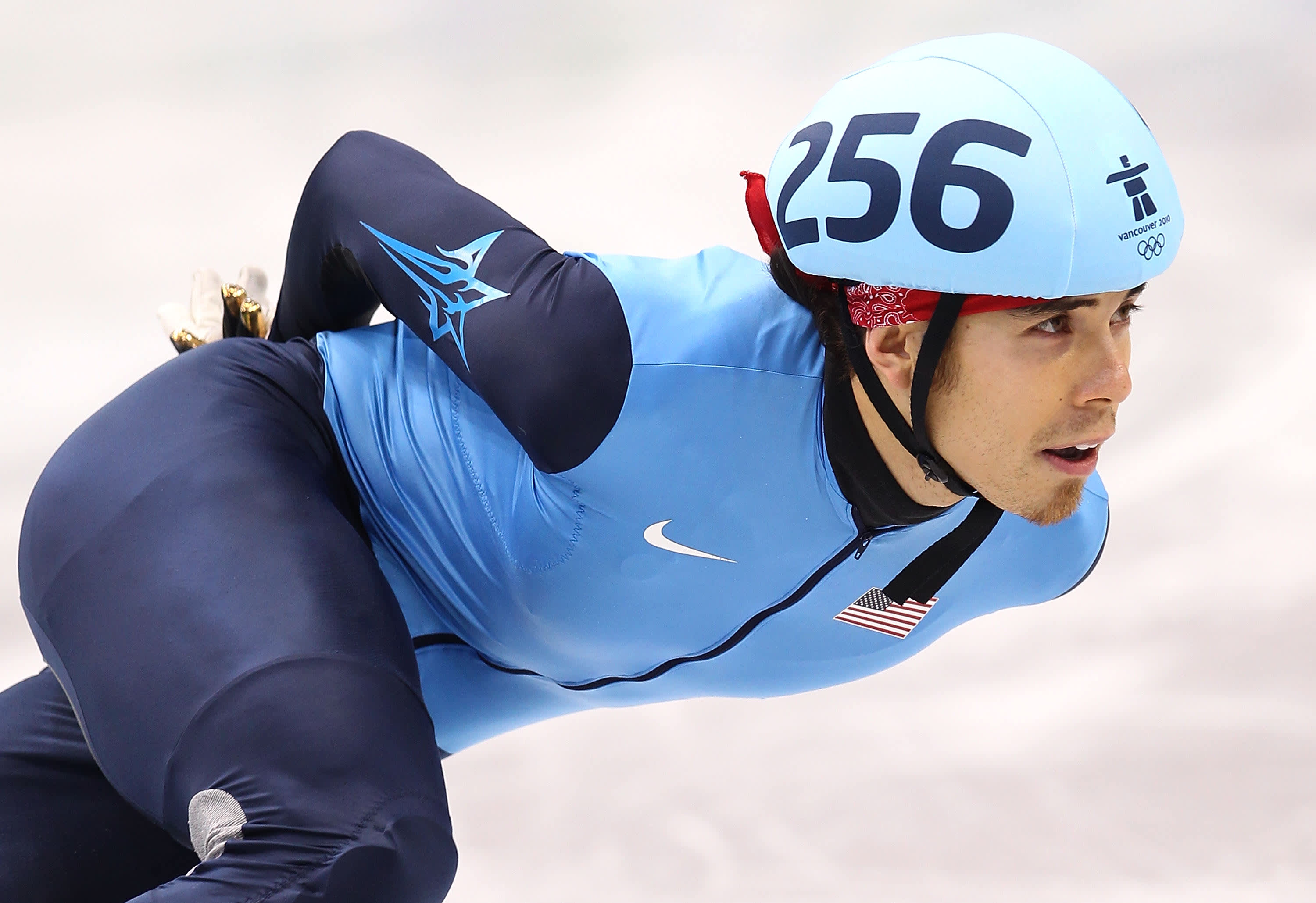When Olympic speed skater Apolo Ohno hung up his skates for good in 2010, finding a path forward wasn’t exactly easy for him.
In fact, the eight-time medalist calls the retirement from the sport that made him a household name, “the great divorce.”
“The experience was abrupt; it was fast, it was a bit scary,” Ohno said.
“I had this one identity that I was married to, that had given me so much,” he said. “I needed to divorce from that identity in a way, not to lose everything in terms of those attributes that built all these experiences in my character today, but also to explore new ones.”
Ohno, now 39, is the most decorated U.S. Winter Olympian of all time. His post-Olympic job titles include sports analyst, entrepreneur, speaker and author. He also was ABC’s “Dancing With the Stars” champ in 2007.
More from Invest in You:
Want a career change? Here’s what experts say to do
With the help of NFL linebacker, this start-up aims to revolutionize education
Meet three entrepreneurs who quit their jobs to start a businesses
These days, Ohno is, among other things, a partner with venture firm Tribe Capital, which invests in early-stage founders and technology companies and has $1.3 billion in assets under management.
His latest book, “Hard Pivot: Embrace Change. Find Purpose. Show Up Fully,” hits bookstores this week. In it, he hopes to impart what he learned since he retired from speed skating, lessons that he believes will be particularly helpful for those in the midst of the Great Reshuffle, also known as the Great Resignation. In the past year, millions of Americans have walked away from their jobs after reevaluating their lives amid the Covid-19 pandemic.
“The greatest amounts of growth come when we are faced with the harshest challenges,” Ohno said. “Those times come when we need to reinvent, when we need to pivot.”
‘Impostor syndrome’
Despite his earlier successes, Ohno admits to having felt insecure when he tried to find a new place in the world.
He even had moments when he suffered from impostor syndrome, which is when someone doubts their abilities. “There were many instances where my mind talked me out of doing something, or told me that I wasn’t good enough, or reminded me that I didn’t have what it took,” he said.
I was deeply dissatisfied with who I saw in the mirror, because that’s how I was conditioned.Apolo OhnoOlympic speed skater
He wanted to be recognized as more than an Olympic athlete, and in the process sought to find himself. That included global travel as a corporate speaker and exploring various business sectors, the latter of which forced him to learn new things.
One key struggle had to do with becoming more adaptable when it came to failure. He may have left the Olympic speed-skating arena behind, but not the mental conditioning that would never allow him to quit.
“We need to learn how to fail fast, and then reinvent and begin again,” he said.
“I didn’t know that early on,” Ohno added. “I just was like, ‘No, I’m just going to muscle through this, I’m going to by sheer willpower make this thing succeed.’ “
Great Reshuffle advice
For those who want to make a career transition, Ohno hopes his experience can be a guide. His first piece of advice? Look within, as he did.
That practice involves dismissing the fear of people’s opinions, or FOPO, as performance psychologist Michael Gervais has called it.
“This transition process starts from having self-acceptance and self-love — which, by the way, full transparency, I really, really struggled with that,” Ohno said.
“I was deeply dissatisfied with who I saw in the mirror, because that’s how I was conditioned.”
Ohno focuses on what he calls five golden principles, which he said helped guide his transition: gratitude, giving — not only to others but giving yourself the best possible chance of success — grit to get through the challenges, gearing up your personal expectations, and go, as in “get into action.”
“Don’t suffer from paralysis by perfectionism,” he said. “Nothing’s ever perfect. It’s never a perfect time.”
Write down what you want to accomplish, step by step, and put the plan into action, he advised.
While Ohno has found a career as an investor and a purpose in helping people, he said he’s still learning every day.
“I am still growing, but I feel like today, I’m laser-focused,” Ohno said. “I view life as a gift, and that’s been a huge, huge change for me.”
SIGN UP: Money 101 is an 8-week learning course to financial freedom, delivered weekly to your inbox. For the Spanish version Dinero 101, click here.
CHECK OUT: How a single mom in Atlanta makes $10,000/month on Outschool while only teaching a few hours a week with Acorns+CNBC
Disclosure: NBCUniversal and Comcast Ventures are investors in Acorns.
